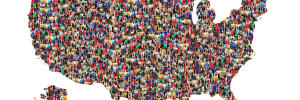
Restrictive benefits and burdensome paperwork turn seeking help into a full-time job. Simple, direct cash payments are much more cost-effective.
Reckless disregard for human life is rampant in the Trump administration’s attacks on immigrants and their neighbors and supporters.
From Chicago to California, immigrants have been killed during ICE raids and traffic stops. And there have been at least eleven non-fatal shootings by ICE and Border Patrol agents in places around the country, including another two victims in Portland, Oregon.
The killings of Renee Nicole Good and Alex Pretti by ICE agents in Minneapolis are not an isolated tragedies, but part of a disturbing pattern of callous and inhumane disregard of life and law. Her death, and the shockingly high number of deaths and harm inflicted in ICE detention and raids, require Congress to stop negotiations on the Department of Homeland Security (DHS) funding bill until careful investigations lead to Congress’ reining in of the reckless tactics of Secretary Noem, ICE Acting Director Lyons, and their underlings.
Last year was the deadliest year in ICE detention facilities in over 20 years, with 32 deaths in 2025.
Right now, Congress is negotiating government funding bills, including funding for the Department of Homeland Security and increasing ICE detention facilities. We can stop this if we raise our voices together.
Click here to start writing to send a message to your senators and representative demanding Congress immediately stop funding DHS and ICE’s inhumane and lethal tactics amidst ongoing investigations.

Restrictive benefits and burdensome paperwork turn seeking help into a full-time job. Simple, direct cash payments are much more cost-effective.

Nearly 3,000 activists registered for the webinar, ready and willing to work together. We heard from national experts on immigration, child welfare, women’s rights, tax justice, and more, sharing strategies that we must implement together to defend our rights and meet our needs.
We have provided this data so that you can easily find it when you are educating your policy makers about the impact of proposals on their constituents, preparing op-eds or other communications materials, and seeking funding for your work.

Trump and Vance announced last-minute opposition to the spending and disaster relief bill before Congress, threatening a government shutdown and delayed relief. Happy holidays, everyone.
The Food Research & Action Center (FRAC) and the Coalition on Human Needs (CHN) are urging Congress to prioritize extending the Supplemental Nutrition Assistance Program (SNAP) replacement benefits in the Farm Bill extension within the end-of-year spending package.
I’m a mom of four and have a child with special needs. Conservatives are pushing harsh cuts to programs that families like mine rely on.
Editor’s note: Sherlea Dony is a retired American Sign Language interpreter, consultant on access services for students who are deaf and hard of hearing, and copy editor currently living in Rochester, New York. This blog was distributed and cross-posted with permission by OtherWords.org. I worked hard my whole career and…

As Congress considers legislation to extend government funding, a coalition of national and state organizations are advocating to protect funding for the Internal Revenue Service (IRS).
Organizations are asked to urge Senate to oppose nomination of Russell Vought for Director of the Office of Management and Budget (OMB).

The collection of objective, high-quality statistics is critical to maintaining public confidence in the data that underlie our democracy, the fair distribution of resources to all communities, and our understanding of who we are as a society.

Every year, we at the Coalition on Human Needs like to consider what we’re thankful for when Thanksgiving rolls around. There’s no doubt, what we’re expecting to be up against come January inspires us with a number of emotions, and gratitude is not really so high on the list.
Except…to live our best lives, we need to grab onto the people, things, and ideas that give us gladness, that surprise us, take us out of ourselves, make us laugh, and remind us of what endures. How can we not be thankful for the chance to experience all that?

The incoming administration and Republicans in Congress want to prevent tax breaks from expiring and to enact new ones. Corporate interests and the rich are lining up to benefit from these breaks.